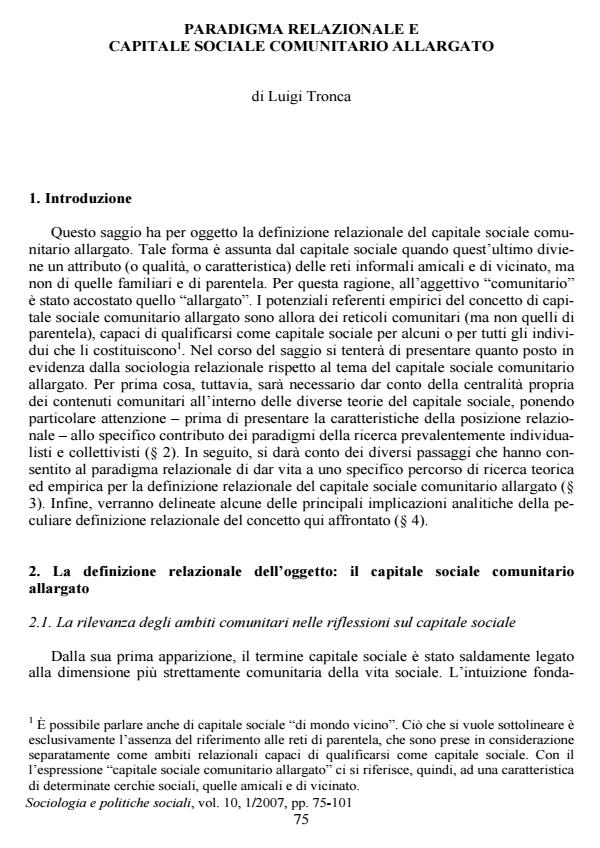Paradigma relazionale e capitale sociale comunitario allargato
Titolo Rivista SOCIOLOGIA E POLITICHE SOCIALI
Autori/Curatori Luigi Tronca
Anno di pubblicazione 2007 Fascicolo 2007/1
Lingua Italiano Numero pagine 27 P. 75-101 Dimensione file 212 KB
DOI
Il DOI è il codice a barre della proprietà intellettuale: per saperne di più
clicca qui
Qui sotto puoi vedere in anteprima la prima pagina di questo articolo.
Se questo articolo ti interessa, lo puoi acquistare (e scaricare in formato pdf) seguendo le facili indicazioni per acquistare il download credit. Acquista Download Credits per scaricare questo Articolo in formato PDF

FrancoAngeli è membro della Publishers International Linking Association, Inc (PILA), associazione indipendente e non profit per facilitare (attraverso i servizi tecnologici implementati da CrossRef.org) l’accesso degli studiosi ai contenuti digitali nelle pubblicazioni professionali e scientifiche.
This article presents the relational definition of the community social capital. This form is assumed by the social capital when the latter becomes an attribute (or quality, or characteristic) of the informal, friendly and neighbouring networks. The main purpose of this article is to present the way relational sociology conceives of the concept of community social capital. First, the author focusses on the central position of the community contents in different theories of social capital, and on the specific contribution of the individualist and holistic paradigms of social research; secondly, he illustrates the theoretical and empirical research that allowed the relational paradigm to suggest a particular definition of the community social capital. He goes on to suggest a way of operationalizing the theoretical concept. In this part of the article, the author analyses the data collected on the occasion of two different researches. Finally, he outlines some of the main analytical implications of the relational definition suggested for the concept of the community social capital.
Luigi Tronca, Paradigma relazionale e capitale sociale comunitario allargato in "SOCIOLOGIA E POLITICHE SOCIALI" 1/2007, pp 75-101, DOI: